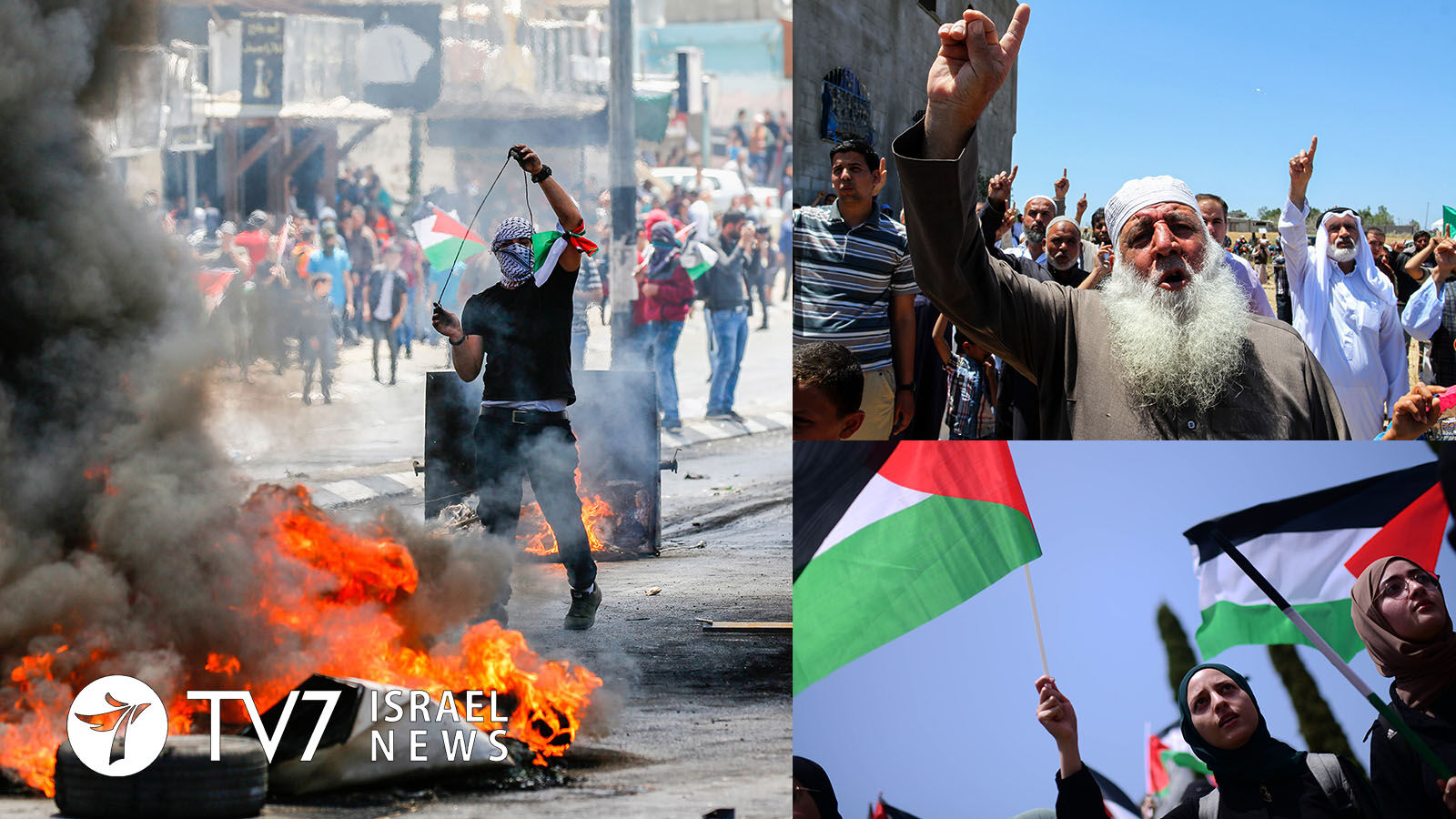By Jonathan Hessen and Erin Viner
Palestinian marked the 75th anniversary of what they refer to as “The Nakba,” which means “catastrophe” or “calamity” in Arabic.
The controversial term used Palestinians and their supporters to describe their perception of the outcome of the 1948 Jewish-Arab war that led to Israel’s rebirth.
As part of so-called annual “Nakba rallies” held in Israel, the West Bank, Gaza and even around the world, Arabs living in the country travel to many of the sites from which they claim Israel had forced them out.
An Arab resident of Jerusalem, Yacoub Odeh, vowed to return to the nearby village of Lifta, from which he fled at the age of 8 in 1948.
“Those who said that the elderly will die and the young will forget were mistaken,” he told Reuters, continuing, “I am 83-years-old, I have not, and I will not, forget.”
Mr. Odah neglected to mention that Grand Mufti of Jerusalem Haj Amin al-Husseini, who chaired the Arab Higher Committee, ordered all women and children to evacuate Lifta on 4 December 1947 so it could be occupied by the al-Najjada paramilitary force to attack Jewish convoys attempting to deliver supplies to the blockaded Jewish community in Jerusalem. Lifta, then known as “Nephtoah” was first mentioned in the Biblical Book of Joshua 18:15, cited as the border between the lands of the tribes of Judah and Benjamin. The village was rebuilt under the name of “Nephtho” during the Byzantine and Roman Empire eras, then became a Christian village called “Clepsta” in the Crusader period before being reconstructed once again in 1596 by the Ottomans.
Nevertheless, as is the case in today’s reality, the United Nations General Assembly adopted a resolution 30 November 2022 to actually commemorate the Palestinian proclaimed Nakba each year.
The keynote speaker at the first of these UN-sponsored events was Palestinian President Mahmoud Abbas, who seized the opportunity to promote his narrative while blatantly likening Israel to Nazi Germany by insisting that the Jewish State is as deceitful as the Third Reich’s Minister of Propaganda Joseph Goebbels.
“This resolution represents a recognition by the organization of the ongoing historic injustice that befell the Palestinian people in 1948, and before that date, and it continues after,” alleged Abbas, continuing, “We were dealt with unfairly before that date, and after that date. It is also refuting, for the first time by you, the Israeli Zionist narrative that denies this Nakba. I am confident and hopeful that the UN will spare no effort for the purpose of restoring the Palestinian people and their legitimate rights and the results and the impact of this Nakba.”
The Palestinian leader also declared that United State and British support for Israel’s establishment was tied to their former colonialist agendas.
32 countries, including the US, Britain, Ukraine, Canada and India boycotted the UN event following strenuous diplomatic efforts by the Israeli Foreign Ministry which requested that the countries allies and partners “refrain from participating in the event that distorts history.”
“We will fight the ‘Nakba’ lie with all our might and will not allow the Palestinians to continue spreading lies and distorting history,” said Israeli Foreign Minister Eli Cohen, adding, “The Foreign Ministry and the embassies around the world acted sharply and quickly and prevented the participation of many countries in a shameful event that should not have taken place at all. We thank our many friends in the world who responded to our call, don’t come to the gathering and stand by the truth.”
The United Nations has long applied a different standard to the categorization of Palestinians as “refugees” than any other people, by permitting them to pass the status down from generation to generation. The agency gives financial benefits to about 5.6 million “Palestinian refugees” living in the West Bank, Gaza and across the Middle East; who are believed to have descended from 726,000 Arabs who fled or were driven out of their homes in fighting in the 1948 war that led to Israel’s creation.
The Palestinians are also the only people to whom the world body has devoted its own exclusive organization, known as the United Nations Relief and Works Agency (UNRWA).
The US had been the organization’s single largest donor since its establishment in 1949, with an contribution of $365 million in 2017. That same year, former President Donald Trump severed aid to UNWRA, after deeming it as an “irredeemably flawed operation” and an “unstainable business model.” At that time, State Department Spokeswoman Heather Nauert announced that the flow of US taxpayer dollars to UNRWA would end due to its “endlessly and exponentially expanding community of entitled beneficiaries.” Washington also blocked nearly all aid to the Palestinian Authority (PA) following its boycott of the United States over its recognition of Jerusalem as the capital of Israel.
Many viewed Trump’s policy as an attempt to force the Palestinians to return to negotiations with Israel. Israeli Prime Minister Benjamin Netanyahu then welcomed the US decision as a positive step forward in the peace process, saying that UNRWA only perpetuated the conflict with the Palestinians.
In 2021, the administration of United States President Joe Biden announced the resumption of at least $235 million in aid to the Palestinians.
